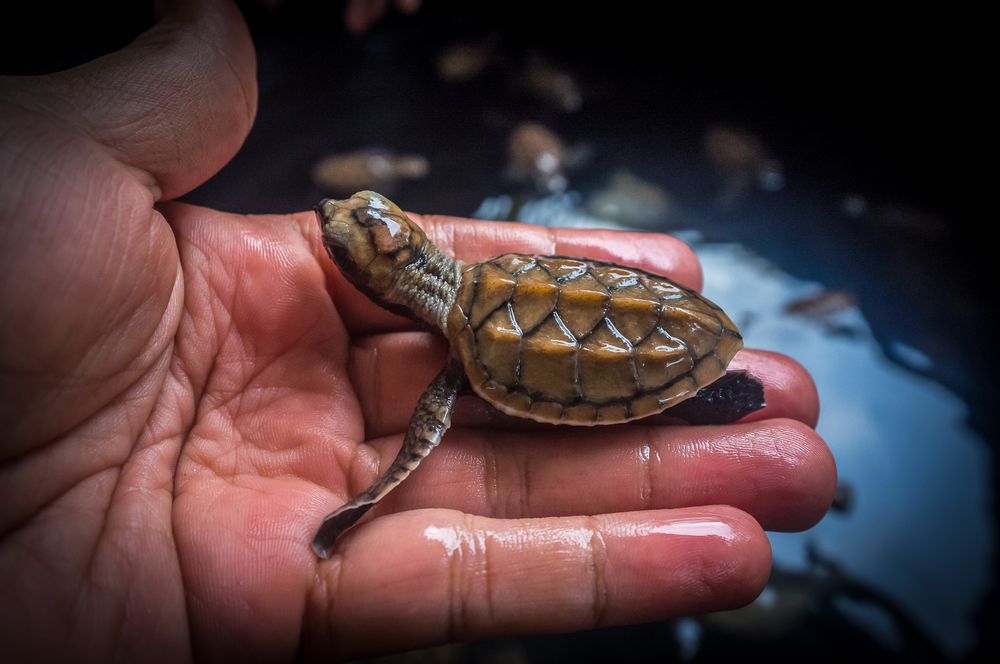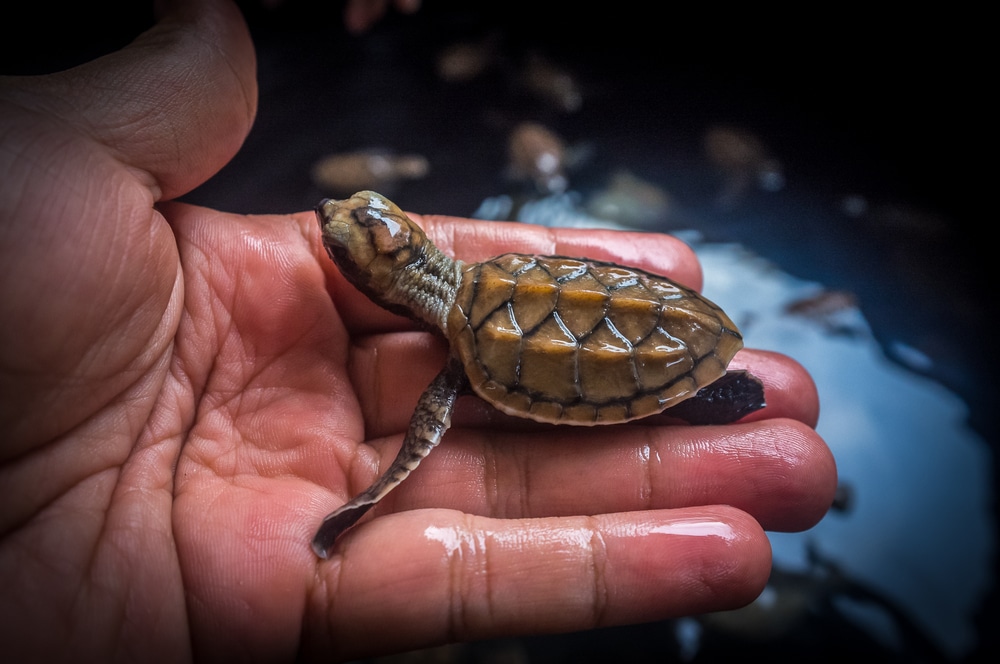Zoo veterinarians treated a baby loggerhead turtle that had pooped out plastic debris it had ingested.
The Perth Zoo in Perth, Australia issued a plea to its followers on Twitter to be responsible when disposing of plastic after zoo veterinarians treated a baby loggerhead turtle (Carreta carreta) that came into its care via West Australian Parks and Wildlife. The zoo posted a video of the turtle on Twitter, along with the strands of plastic that it had ingested.
A reminder to reduce your use of plastic and dispose of it responsibly: Think of this endangered Loggerhead Turtle our vets have been treating. It was rescued by @WAParksWildlife & came to us for medical care, the poor turtle has been pooping out plastic ingested from the ocean! pic.twitter.com/j56e9s2bMr
— Perth Zoo (@PerthZoo) April 3, 2018
“A reminder to reduce your use of plastic and dispose of it responsibly: Think of this endangered Loggerhead Turtle our vets have been treating,” the zoo wrote on Twitter. “It was rescued by @WAParksWildlife & came to us for medical care, the poor turtle has been pooping out plastic ingested from the ocean!”
A study by Australian scientists with the University of Queensland and the Scientific and Industrial Research Organization (CSIRO) found that younger ocean-going sea turtles are more likely to ingest plastic trash than their older relatives that live in coastal areas, and over time, green (Chelonia mydas) and leatherback sea turtles (Dermochelys coriacea) ate more plastic. About 80 percent of marine debris originates from land-based sources, the study said.

hkhtt hj/Shutterstock
An Australian study notes that younger ocean-going sea turtles are more likely to ingest plastic trash than their older relatives that live in coastal areas.
The IUCN's Marine Turtle Specialist Group lists discarded plastics as a major threat to sea turtles, and especially leatherbacks.
Leatherback turtles feed almost exclusively on jellyfish, and they often mistake floating plastic bags, balloons, and other trash that ends up in the ocean as jellyfish.
Leatherback Trust Biologist Removes Plastic Fork From Nose of Olive Ridley Turtle
Sea Turtle Wedged in Plastic Lawn Chair Washes up on Florida Beach
Sea Turtles Ingesting More Plastic Than 25 Years Ago
According to the World Economic Council, by the year 2050, there will be more plastic in the world’s oceans by weight than fish. Now that is a scary thought. The WEC also said that the recycle rate of plastic packaging, (1/4 of all plastic created is for packaging purposes) is dismal, at just 14 percent.
Studies have found alarming amounts of plastic being ingested by fish. One study by University of California, Davis researchers found that 25 percent of wild caught food fish from markets in California and Indonesia contained man made trash in their guts, mostly plastic materials and fibrous materials from clothing. Scientists are currently studying whether these man made materials can transfer to the meat of fish, but as of now, this stuff is just found in fish guts.
So it is no surprise that these baby sea turtles are also ingesting the man made material. It is well documented that grown sea turtles ingest plastic bags and balloons and other large floating plastic debris. Hopefully everyone can do their part to reduce the use of plastics in our everyday lives. Refuse the straw when eating out. When out herping, pick up whatever trash that you see and dispose of it properly. Don't pass plastic trash when you see it. Dispose of it. Plastic pollution is everyone's problem. Don't maintain a single-use mentality. We can be the solution.



